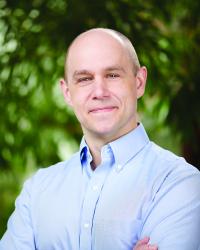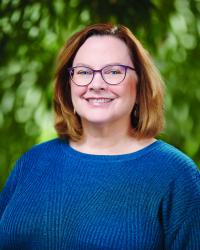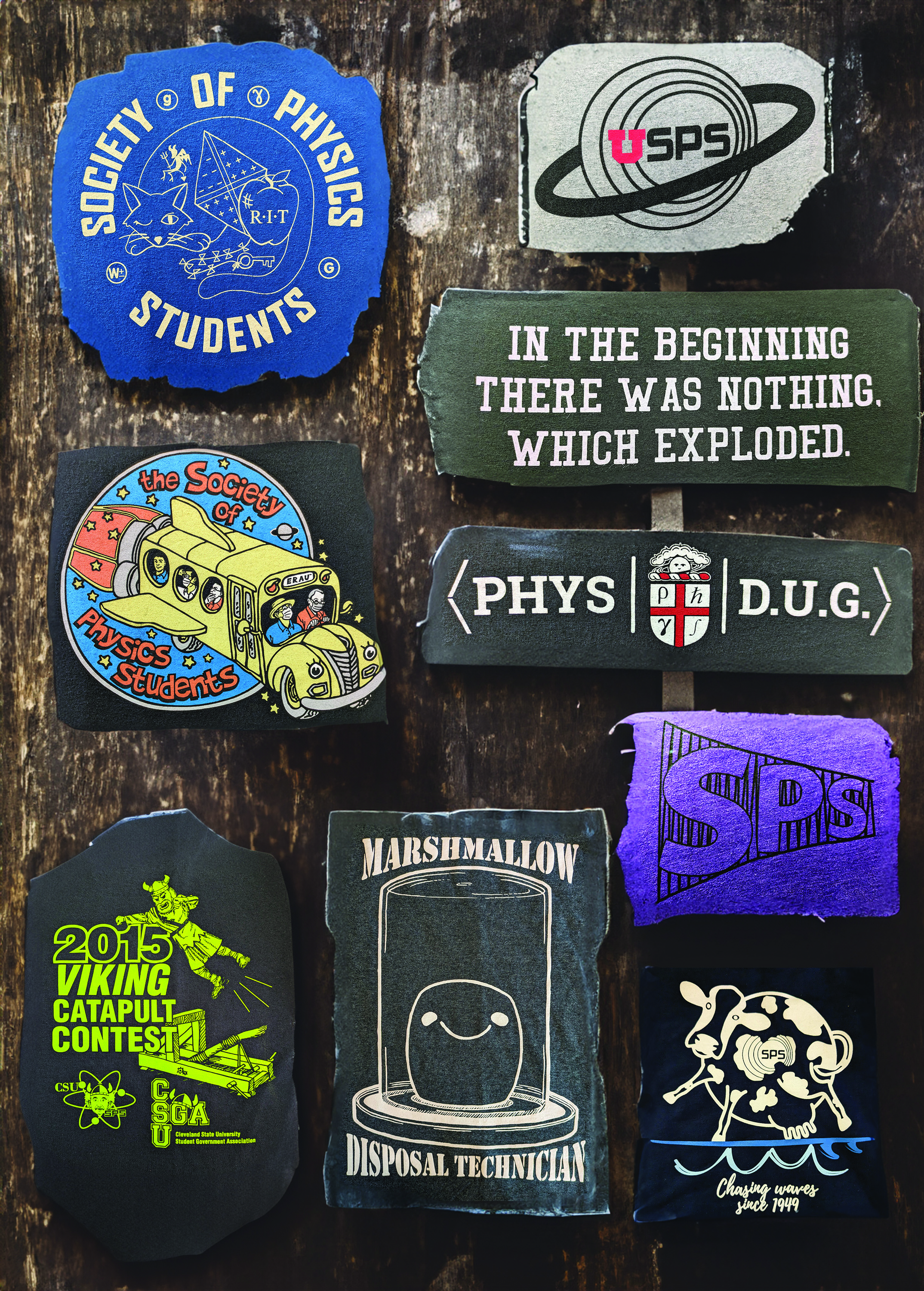Time and World Enough
Fall
2023
Letters and Feedback
Time and World Enough
Brad R. Conrad, Past Director of SPS
replacement for 1-letter1-trio.jpg

Brad Conrad.
It’s important to share the things we learn during our careers, so that others may more quickly learn lessons it took us a long time to forge. Over the past eight years, I have installed 70 SPS and 20 Sigma Pi Sigma chapters, visited nearly 150 chapters, and hosted inductions for more than 40 chapters. Having connected with so many different schools, with so many different environments, traditions, and (most importantly) students, I’d like to share a few best practices for members of Sigma Pi Sigma who seek to uphold the four pillars of the organization. Upon joining, each of us agreed to
- Encourage those seeking knowledge and competence in physics and astronomy;
- Develop and maintain an attitude of service;
- Support colleagues, promote fellowship, and honor excellence in physics and astronomy; and
- Encourage scholarship in physics and astronomy, at all levels.
When I joined, I knew what each of these phrases meant, but my understanding has evolved through my encounters with selfless members who have impacted generations of students and scientists. And as my understanding has changed, so too has my interpretation of the importance of these phrases—I now consider them columns that support, fortify, and strengthen us. These pillars do a fantastic job of calling out the types of actions that make SPS and Sigma Pi Sigma a physics and astronomy family, and I can point to specific times when I’ve seen that in action.
I can point to Professor Michael Richmond at Rochester Institute of Technology advertising that anyone seeking homework or study help was welcome in his office between observing runs (scholarship). I can point to plenary speaker Jim Gates sitting in a conference hotel lobby for several hours, talking to each and every student who wanted to chat at a Sigma Pi Sigma Congress (service). I can point to honorary chair Jocelyn Bell Burnell taking to breakfast those students who bravely came alone to a Congress (fellowship). And I can point to the day when John Andersen, my dear friend and professor at the University of Maryland, College Park, called me after my father had passed away, my first year of graduate school, to see if I needed books, supplies, or someone to talk to (encouragement).
These people represent the pillars of Sigma Pi Sigma for me, along with countless others I wish I had space to mention here. I’ve seen members and faculty selflessly giving of themselves, time and time again, because students and colleagues are—in a very real way—extended family. Many hands make light work. May each of us go out of our way to be pillars for those in our extended Sigma Pi Sigma family. This is the best way to uphold our oaths.During my time as director, another amazing window into the impact of the society has been physics and astronomy club shirts. Student groups commonly sell shirts, buttons, stickers, and even hats to help fund their activities. While visiting chapters I’ve seen shirts of every color and many crazy designs, some that I was a little nervous to wear. Each one is a treasure and a tangible example of students making something their own and finding belonging within the field. In a larger sense, encouraging students to develop community and a sense of identity within the department are among the most important roles of this organization.
If I could spur Sigma Pi Sigma members to take only one specific action, it would be this: Help the SPS chapter at your alma mater or in a local department make something that is their own and, if you can, wear it proudly. I’ve bought many SPS T-shirts to encourage chapters and support their activities. Late in my tenure, they became my work uniform. What stronger message of support can someone send than “I support you being you”?
From the first meeting of Sigma Pi Sigma, the society has kept a discernible focus on the student experience. As evidence, consider this somewhat silly story:
The most serious subject for consideration at the first business meeting after organization was a discussion by Price, Brice, and Dew [founding members] as to how much voltage could be applied to “Wooly” Grey [member of the first induction class] without doing him any permanent injury. A moderate voltage was decided upon and applied at a later date.
—Radiations, December 1931
For those who have to know what happened, the next log clarified that Wooly felt no “lasting or permanent damage.”
Our “secret” handshake is something that every physics and astronomy student can guess because (a) they use it so often in E&M, and (b) we look rather silly using the rule. This silliness permeates chapters and the organization in surprising ways. At one Sigma Pi Sigma induction ceremony, I was “knighted” by the “physics stick,” a chapter’s mascot that was several decades old by that point. In another chapter, every inductee is invited to share their favorite science joke as they sign their name in the Red Book. It’s well known that Marsh White, a leader in the organization for 60 years, liked to make physics puns when he installed chapters and encouraged them to carry on the tradition.
As physics and astronomy are such serious subjects, it’s important to remember the words of another previous SPS director and one of my personal heroes, Ed Neuenschwander. “Do not get so obsessed with the degree of tomorrow that you overlook the joys of being alive today.” Sometimes, that means making sure that you don’t take everything or everyone, including yourself, too seriously.
Sigma Pi Sigma and SPS are each and every one of us. We are an organization of people who support people. I hope that you continue to prioritize fellowship and be of service to those within your field. There is never enough time to accomplish it all, but I encourage you to drop a line to a colleague who helped you along your path, reach out to a chapter, and make time to support those around you.
Your fellow Sigma Pi Sigma member,
Brad R. Conrad
P.S. For those of you wondering, I’m excited to be joining the National Institute of Standards and Technology (NIST) Office of Advanced Manufacturing, which falls under the US Department of Commerce. As education and workforce development manager, I'll be strengthening collaborations and leading partnerships among education and workforce development stakeholders, educators, workers, and students.
Get Support for Inductions and Chapter Activities
Sigma Pi Sigma Chapter Project Awards of up to $500 are awarded to chapters to support inductions or other engaging activities that include alums or promote Sigma Pi Sigma on campus or to the public. Learn more at sigmapisigma.org/sigmapisigma/awards/chapter-project.
Be a Resource for SPS Chapters
Join the SPS and Sigma Pi Sigma Alumni Engagement Program—a database of participants willing to be speakers, panelists, tour guides, and mentors for SPS chapters. Learn more at spsnational.org/programs/alumni-engagement.
Meet Rachel Ivie, Interim Director of SPS and Sigma Pi Sigma
1-letter4-Ivie.jpg

Rachel Ivie.
Ivie received a PhD in sociology from the University of North Carolina at Chapel Hill, where she specialized in research methods, statistics, and gender. She came to the American Institute of Physics, the parent organization of Sigma Pi Sigma, in 1998. For most of her career, Ivie worked with the AIP Statistical Research Center (SRC), including as director of the SRC. She is a fellow of the American Astronomical Society.
Ivie is a sought-after expert on the careers of physicists and astronomers, particularly the careers of women in these fields. She has designed and carried out numerous studies of the physics and astronomy communities, from a global study of scientists that outlines gender differences in career progress to a longitudinal study of astronomy graduate students that uncovered factors that may make women more likely to leave the field. Prior to becoming the inaugural senior research fellow at AIP and interim director of SPS and Sigma Pi Sigma, Ivie was senior director of education and research at AIP.
"I’m excited to be working with the SPS and Sigma Pi Sigma staff, volunteers, and students during this time of transition," Ivie says. "I intend to carry out my stewardship of SPS and Sigma Pi Sigma in line with my personal values of integrity, trust, and a belief in the importance of science. I look forward to interacting more with everyone who contributes to the success of SPS and Sigma Pi Sigma."


